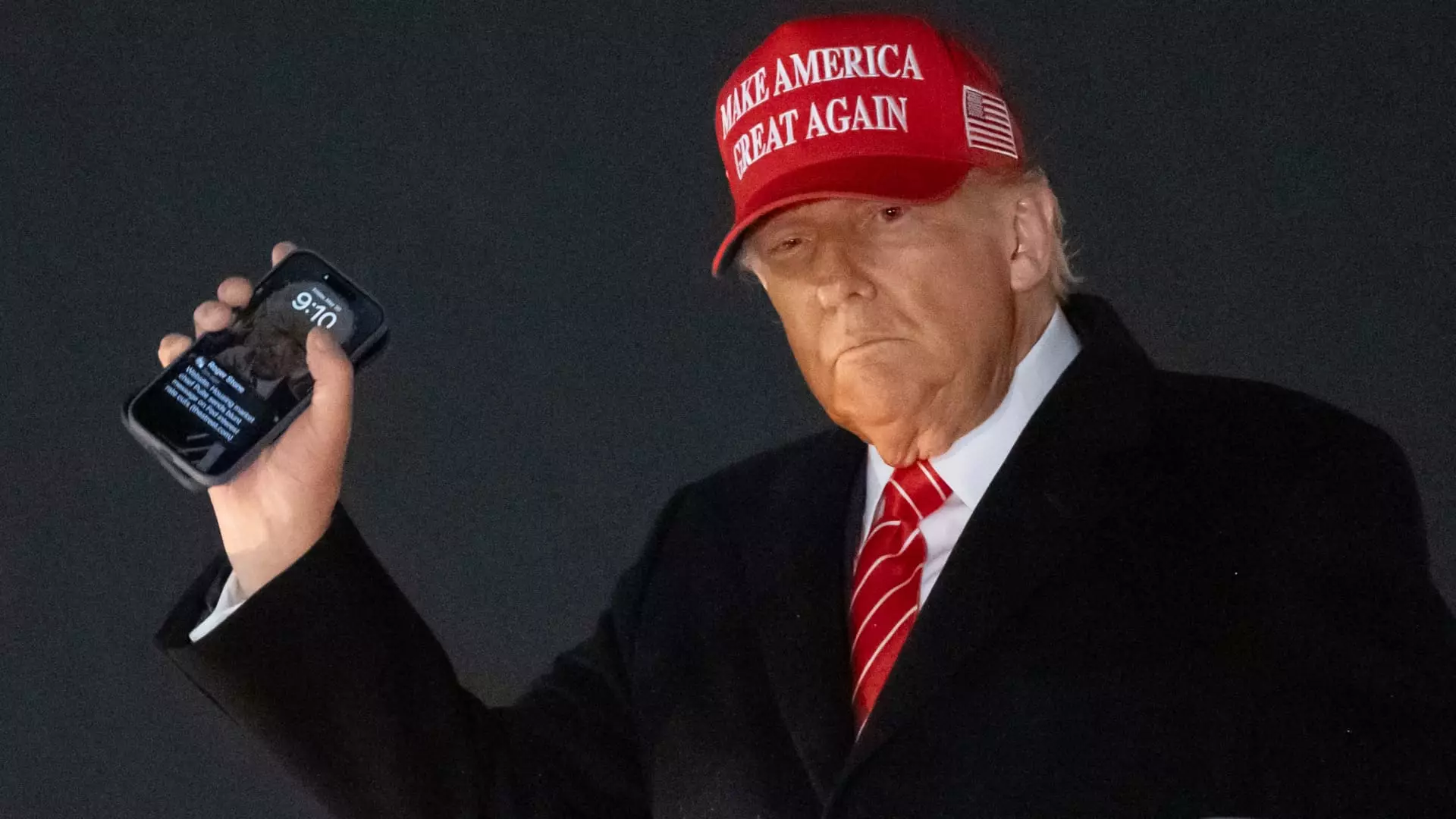The launch of Trump Mobile and its $499 smartphone marks yet another bold attempt by the Trump Organization to intertwine branding with political identity. At first glance, this venture appears to be a savvy business move—an extension of Donald Trump’s enduring brand nestled within the telecommunications space. However, as with many of Trump’s enterprises, it raises pressing questions about ethics, the sincerity of innovation, and the shadows of opportunism lurking beneath the surface.
The mobile plan, dubbed “The 47 Plan,” cleverly references Trump’s unique political position, where he pivots from being the 45th to the 47th president. This branding strategy feels almost disingenuous when one considers the pain points faced by average consumers who are presented with a wireless plan priced at $47.45 per month—far steeper than those from established carriers like Verizon or Mint Mobile. The introduction of seemingly extravagant offerings like the T1 smartphone, heavily adorned with a gold-colored case emblazoned with the American flag, suggests a target market more focused on identity than utility. Ultimately, this venture feels more like a masterclass in branding strategy than an authentic attempt to revolutionize telecommunications.
Exploitation or Entrepreneurial Spirit?
Criticism abounds regarding the ethics of this latest foray into mobile services. The Trump Organization has faced allegations of opportunism, capitalizing on political success to launch products that feel more like extensions of the political campaign than genuine business initiatives. The “Telehealth and Pharmacy Benefit” included in the mobile plan adds another layer of complexity. In a time when healthcare access is a hot-button issue, this feature seems to exploit consumer vulnerability rather than serve a genuine need.
While the website’s disclaimer states that Trump Mobile is a licensing agreement rather than a fully-controlled product, it becomes evident that the organization is not shy about profiting from its political capital. Trump himself reported earnings exceeding $8 million in 2024 from various licensing agreements—money likely derived from marketing a lifestyle that many adhere to out of loyalty to the brand rather than sensible consumer choices. This highlights a critical contradiction: if the aim of the venture was to serve consumers more effectively, why does it appear to cater mainly to the wealth of the Trump brand?
High Prices and Low Choices
It is nearly impossible to ignore the gulf between Trump Mobile’s pricing and that of its mainstream competitors. For less than half the cost, consumers can obtain an unlimited plan from providers known for reliability and widespread service. The fact that a newly launched plan can’t compete on price throws into stark relief the likelihood that many consumers are purchasing into a lifestyle brand rather than a functional service.
Moreover, the promise of providing “the same coverage as the three nationwide phone service carriers” is a statement begging for scrutiny. When asked about the location of its purported U.S.-based customer service center, representatives cited “security reasons” for declining to answer. Such vagueness only deepens skepticism surrounding the service’s reliability. Consumers today are savvier than ever, demanding transparency and trustworthiness—qualities that appear contradictory to Trump’s business modus operandi.
Politics and Commerce: A Dangerous Blend
The emergence of Trump Mobile illustrates a troubling trend of intertwining political identity with commercial ventures. As alliances form between consumer goods and political allegiance, we must ask ourselves whether we are entering uncharted ethical territory. The fusion of commercial interests with political campaigns isn’t new, but the extent to which the Trump Organization is pursuing such avenues raises alarming concerns about integrity.
The ubiquity of his branding and the relentless promotion of products, characterized by their gaudy luxury, serve as a reminder of how business and politics can sometimes become indistinguishable. While his supporters may revel in this merging of interests, one must contemplate the long-term implications of normalizing such exploitative practices. Will consumers eventually be expected to pledge their financial allegiance to a brand intricately tied to a political persona?
The launch of Trump Mobile might herald the next chapter of brand politics, but it also beckons consumers to tread cautiously in a marketplace where loyalty, ethics, and profit margins intermingle in troubling ways. This venture, cloaked in the American flag and suffused with gold accents, may signify a brand’s aspirations far beyond telecommunications—it represents a political and economic landscape fraught with implications for us all.


Leave a Reply